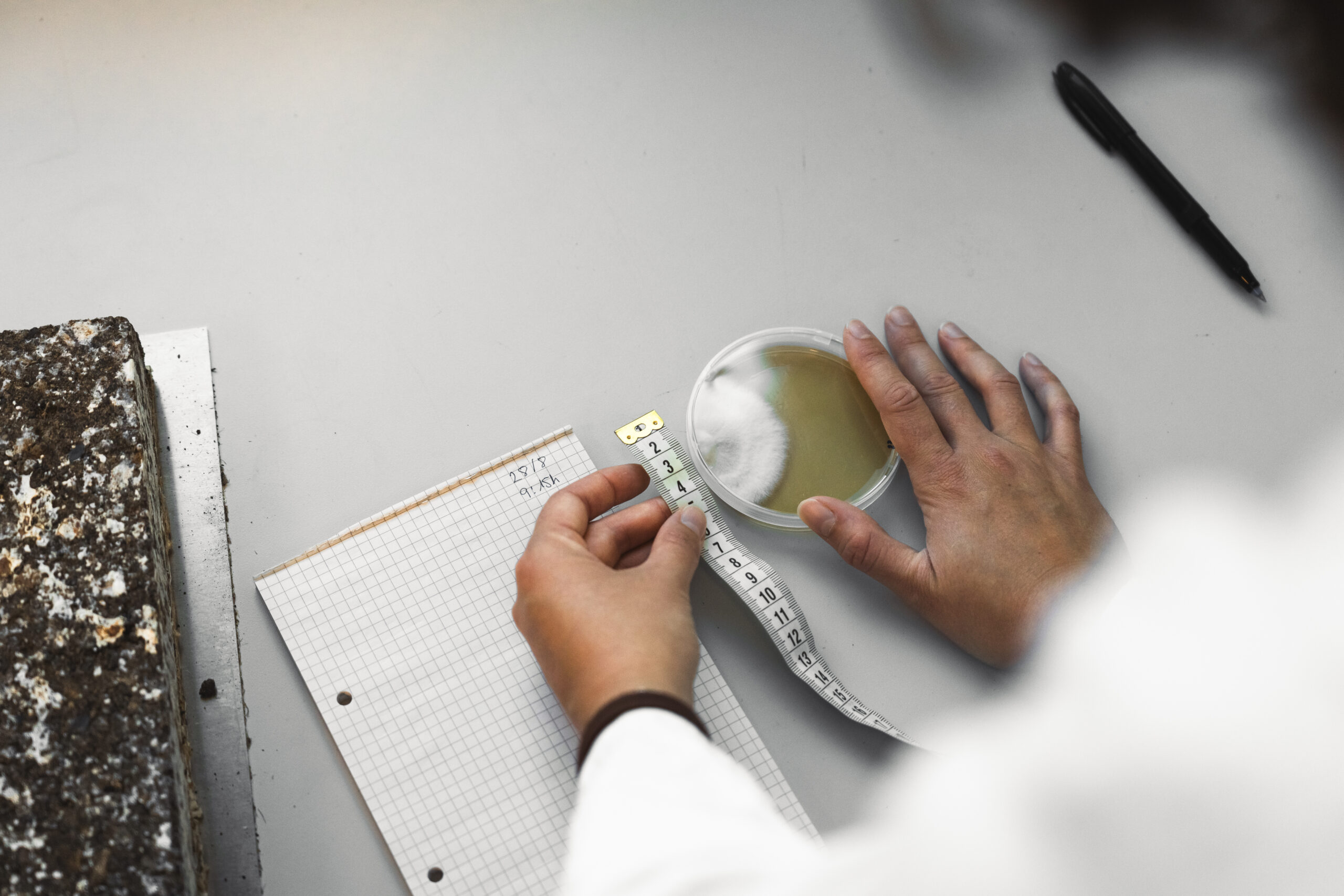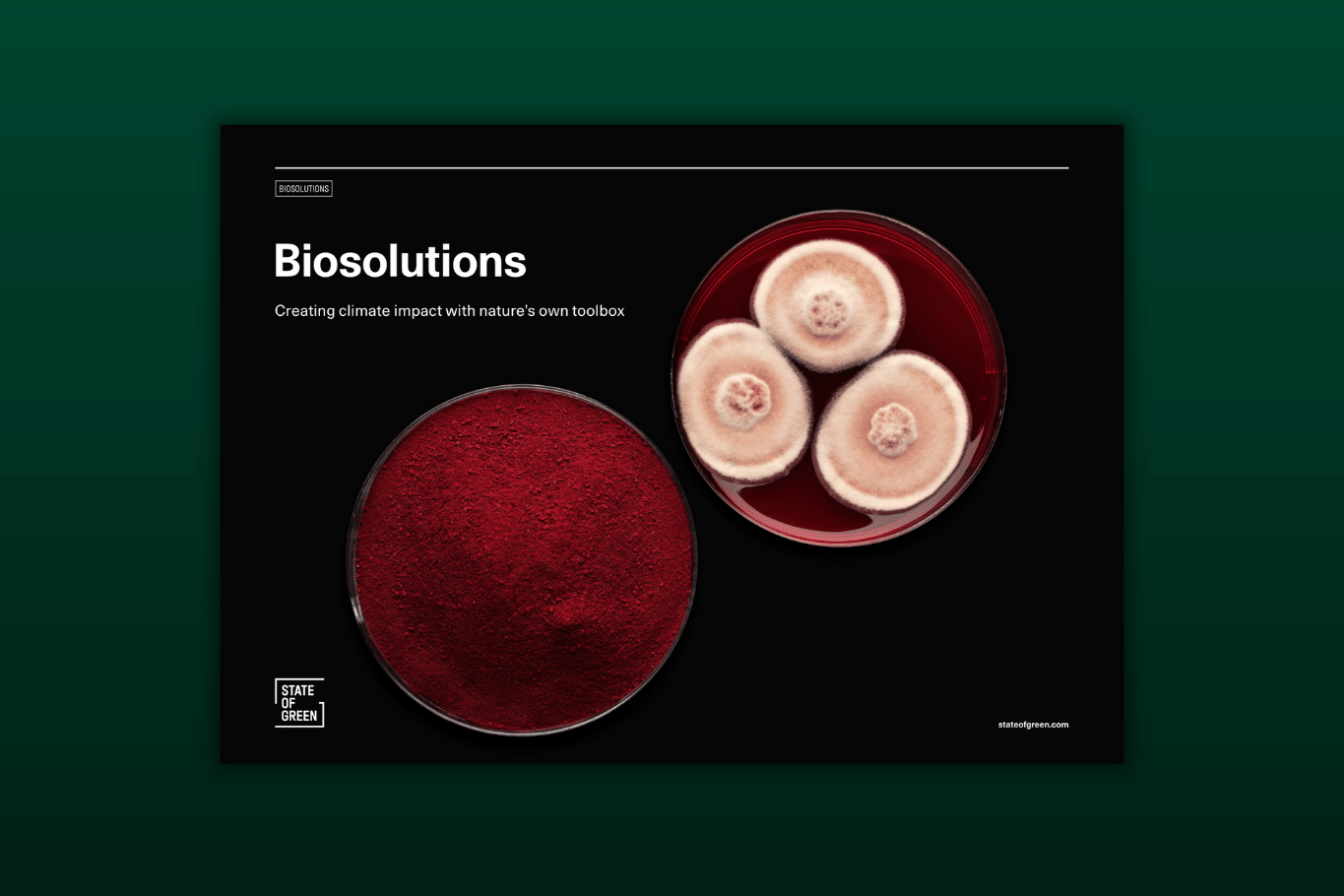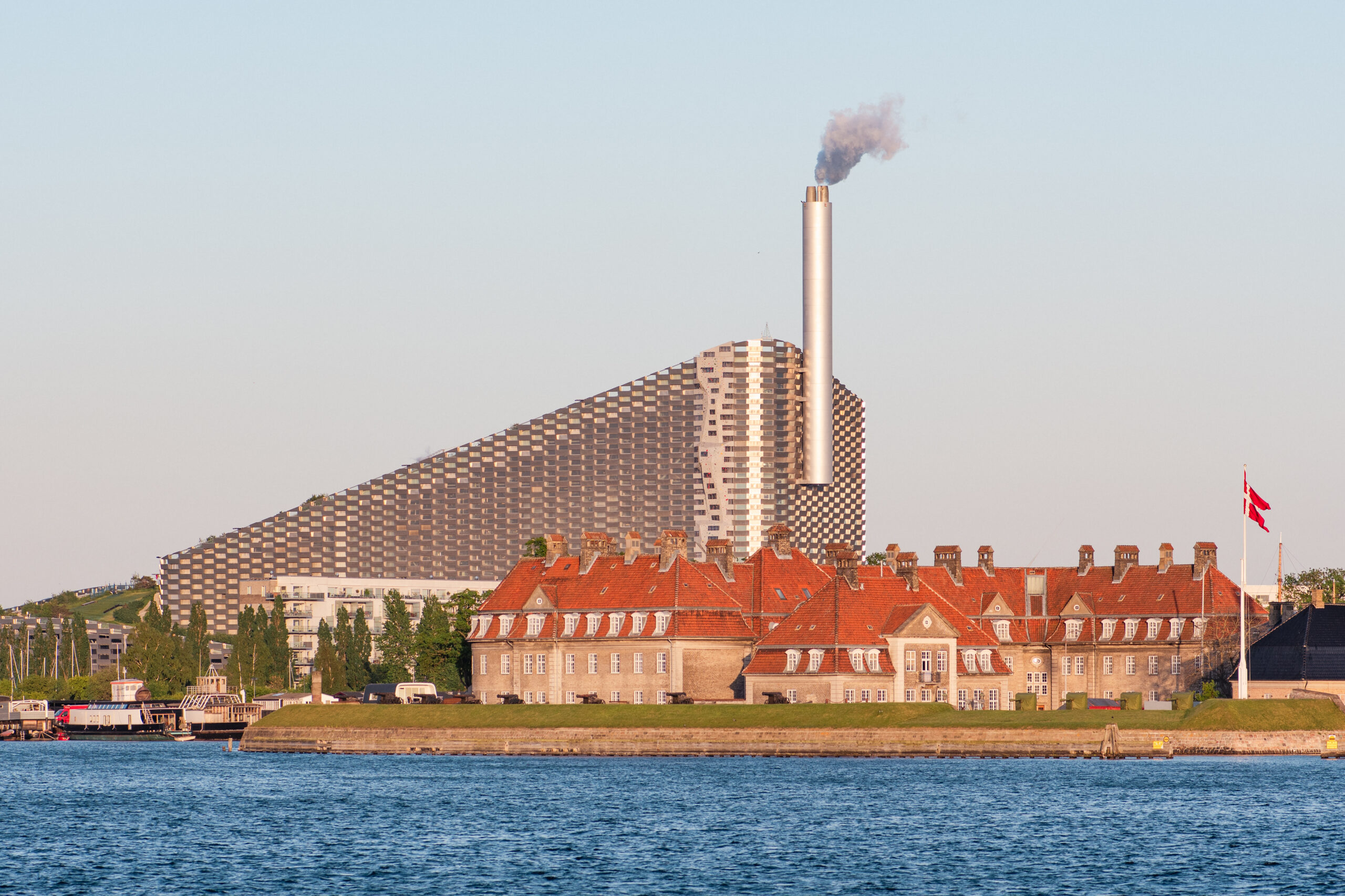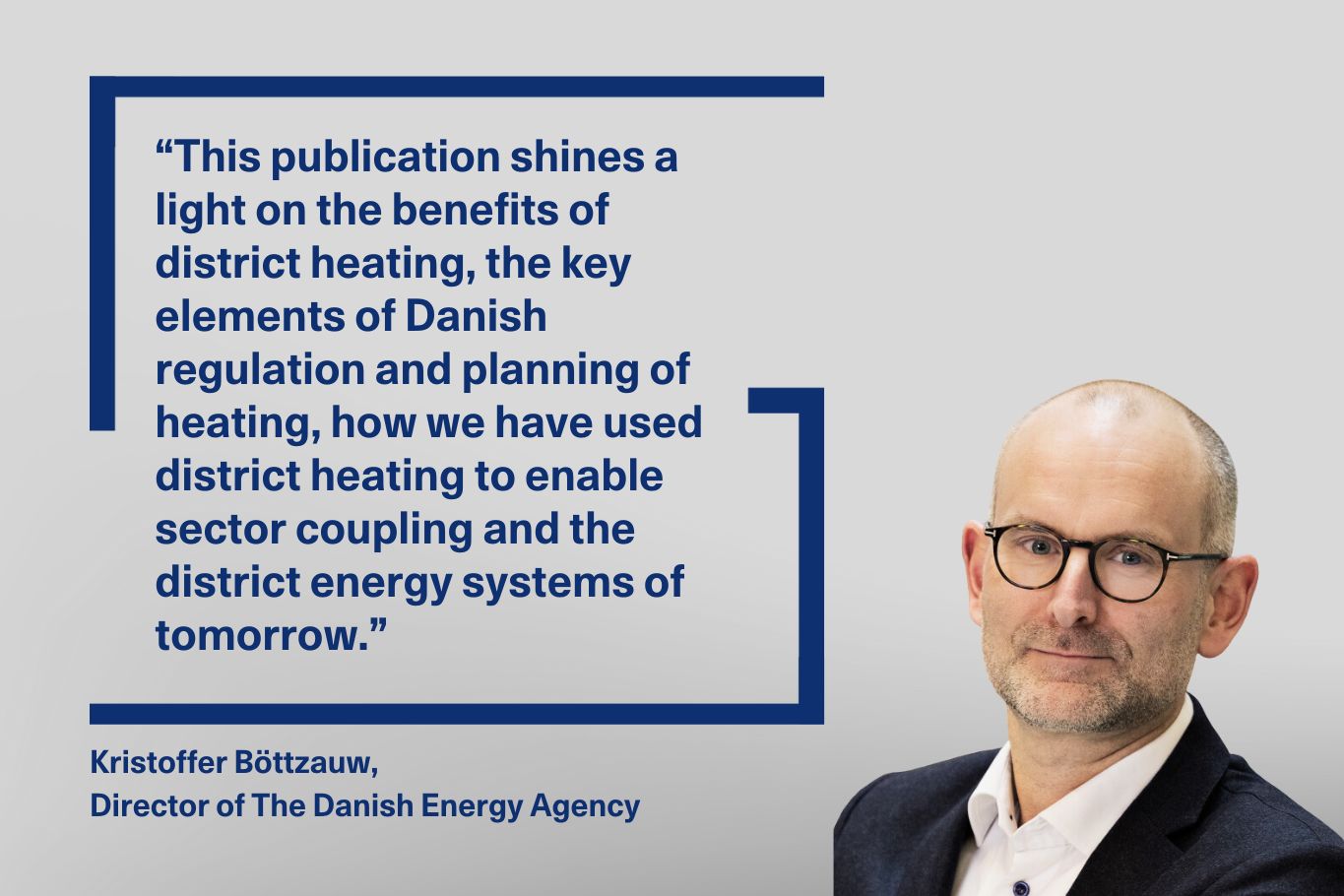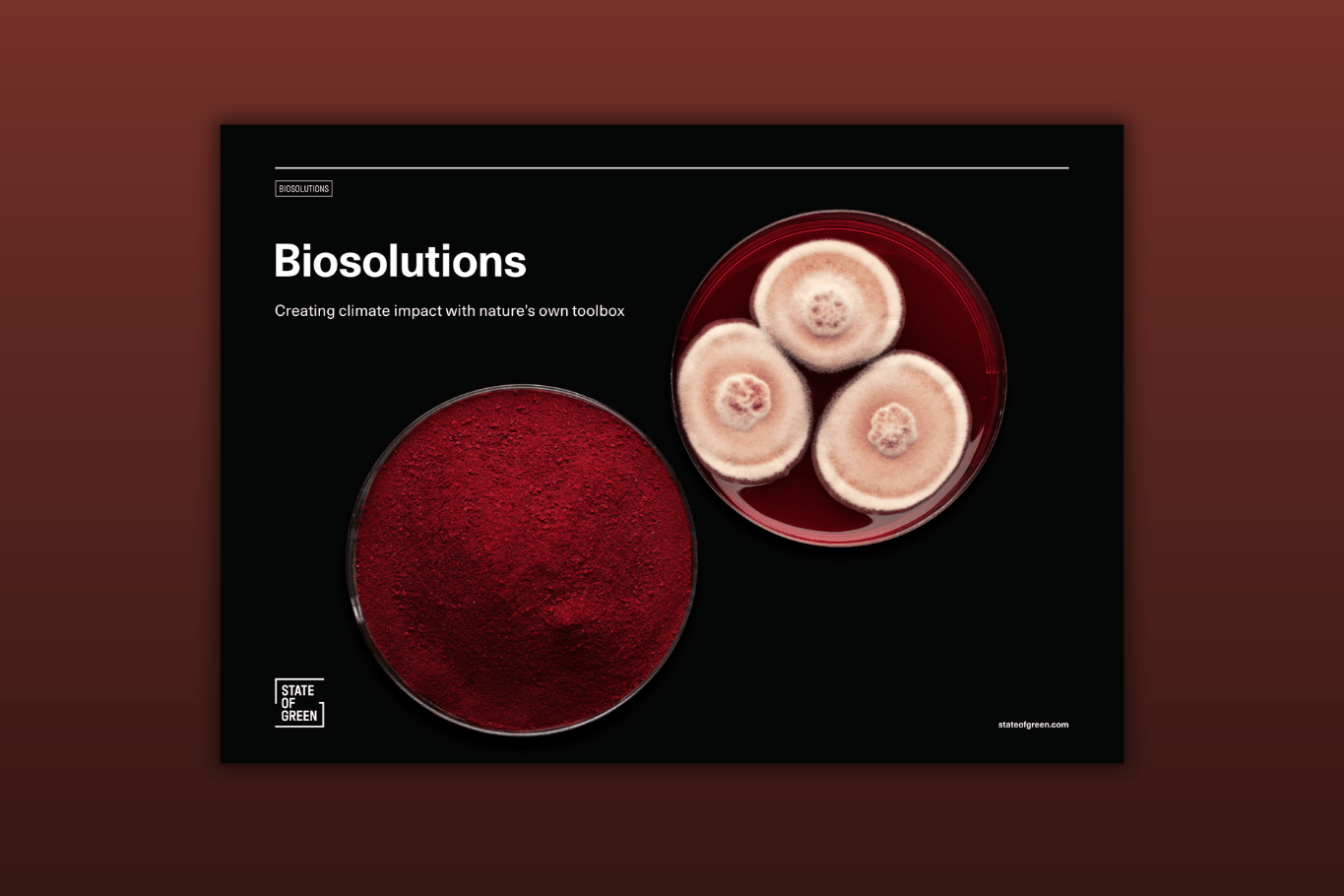2. Industrial applications: Biosolutions driving sustainable transformation
Biosolutions have the potential to make an important impact across hard-to-abate industries, offering innovative alternatives to traditional methods. By integrating biosolutions into industrial processes, businesses can reduce CO2 emissions, optimise energy usage, and adopt circular economy models.
For example, Algiecel is harnessing the power of microalgae to capture CO2 emissions while producing nutrient-rich algae biomass for use in food, feed, and cosmetics. Their photobioreactor technology offers a sustainable, compact solution for SMEs to capture carbon on-site and turn it into valuable resources.
Another example is Visibuilt, which is transforming the construction industry with visiBIT, a sustainable alternative to traditional asphalt. By replacing bitumen with a binder derived from mycelium, Visibuilt reduces CO2 emissions and energy consumption during asphalt production, offering an eco-friendly approach to road construction that is more aligned with the green transition.
Meanwhile, Aquaporin is improving water treatment efficiency through its innovative aquaporin protein-based filtration technology. By mimicking the natural filtration process of aquaporins in living cells, Aquaporin’s technology enhances reverse osmosis systems, reducing energy consumption by 30% and significantly lowering the carbon footprint of water purification processes.
Additionally, Novonesis is tackling plastic waste by using enzyme technology to recycle non-recyclable plastics, paving the way for more sustainable plastic production. Their innovative enzyme-based approach enables the recycling of PET plastics into high-quality materials, reducing reliance on fossil fuels and contributing to a circular economy.
